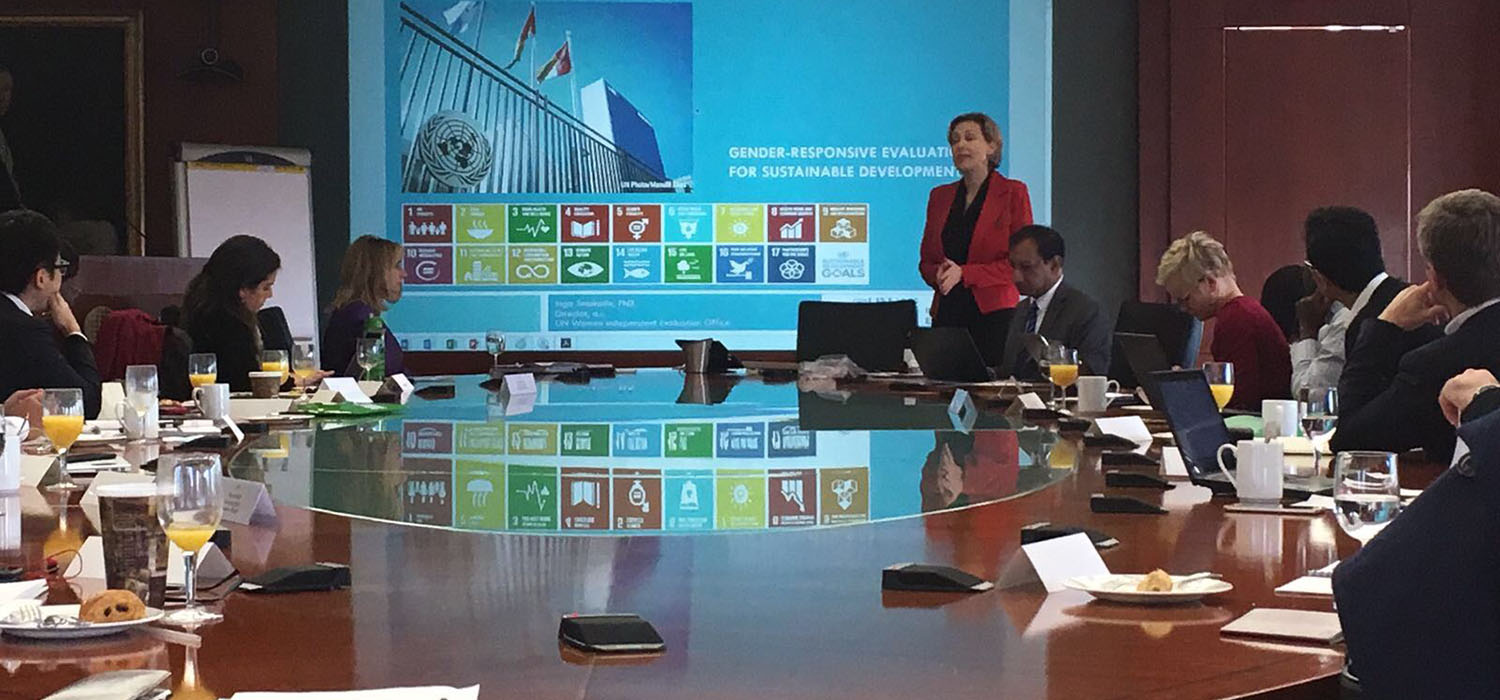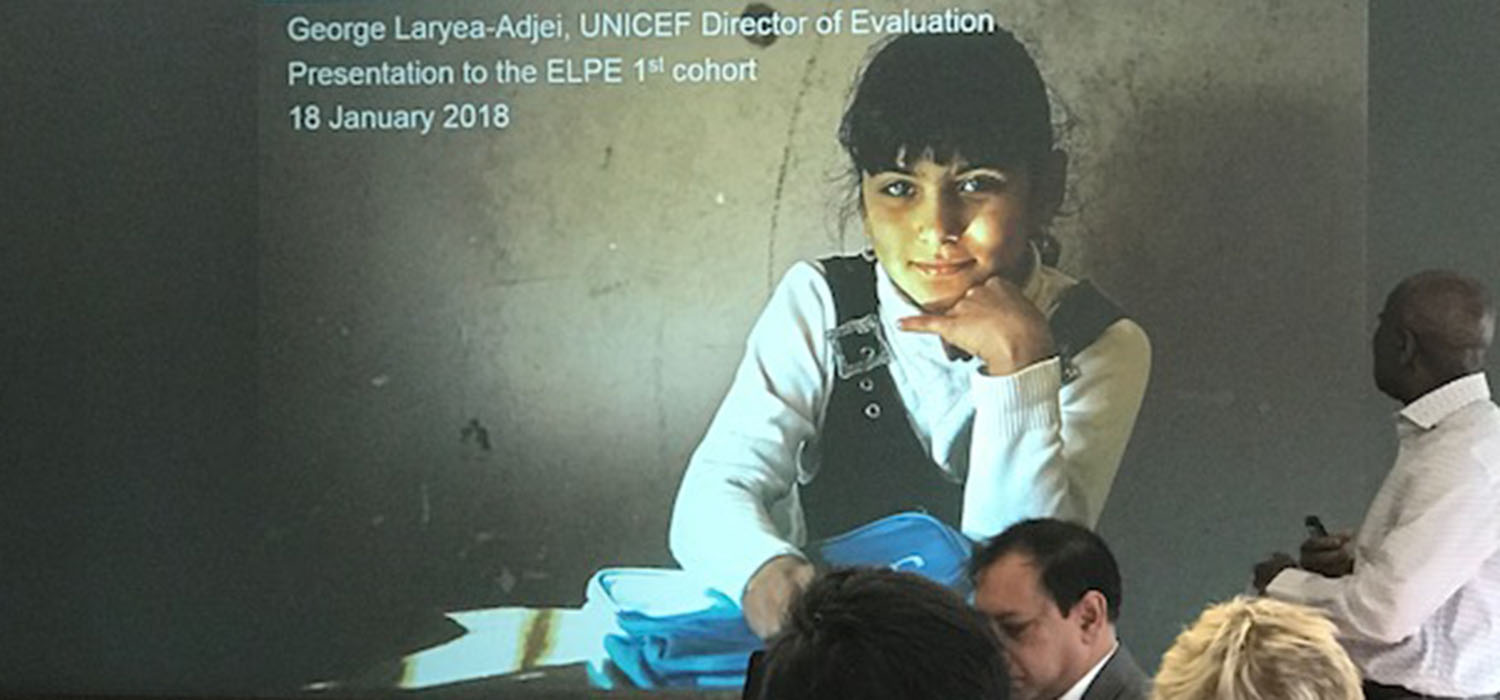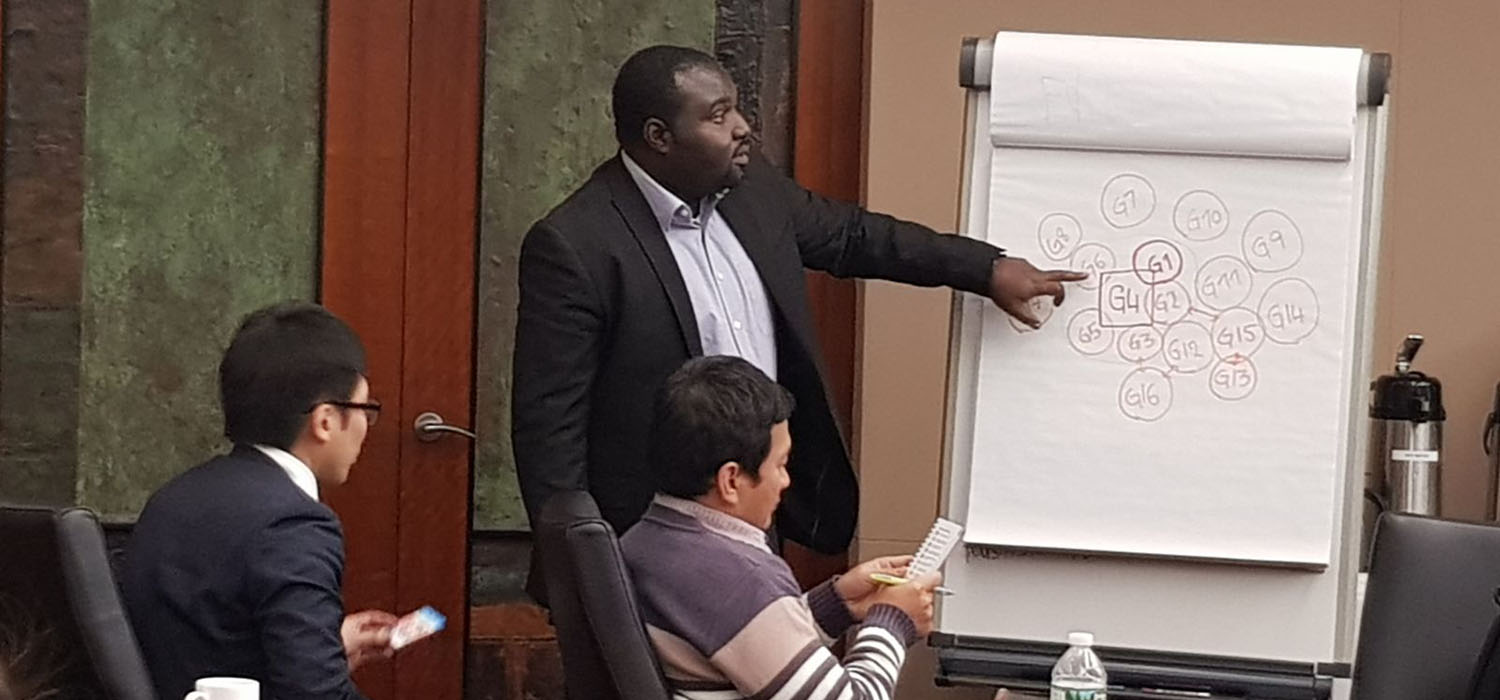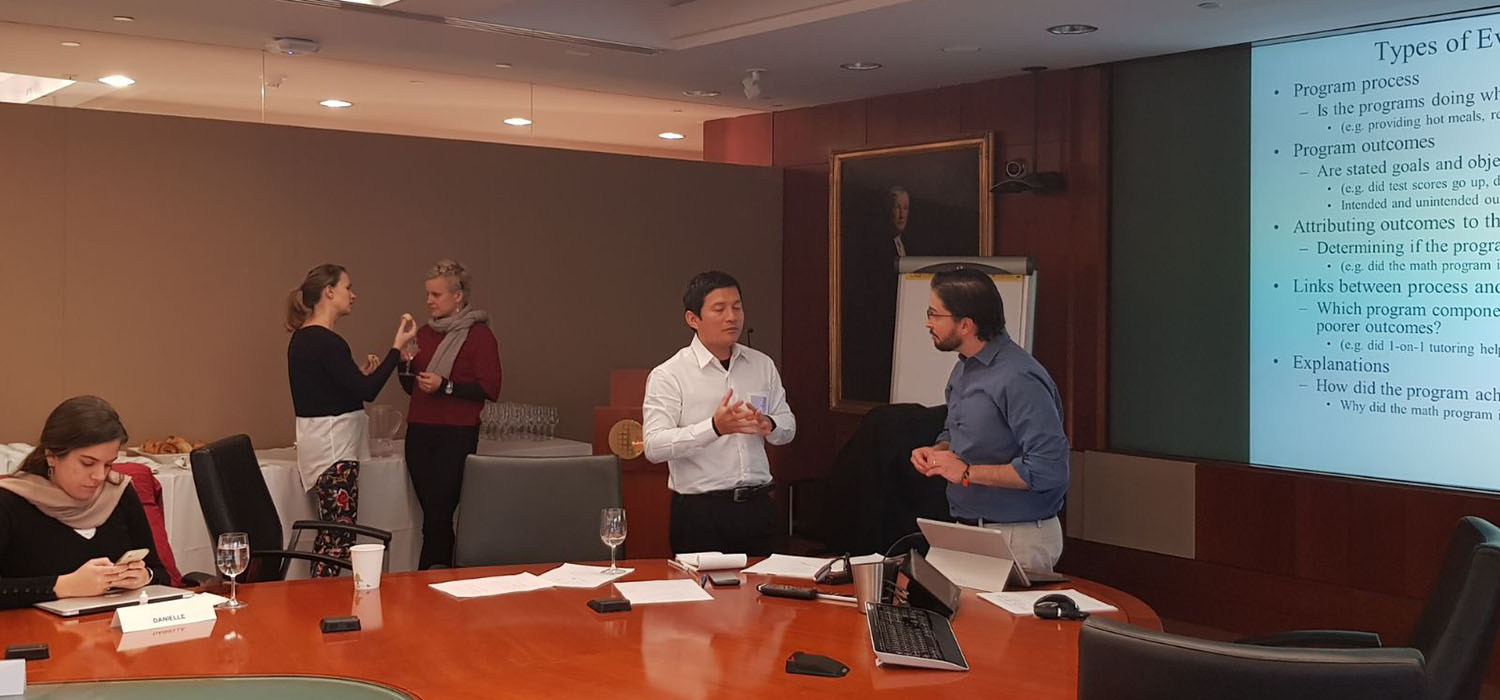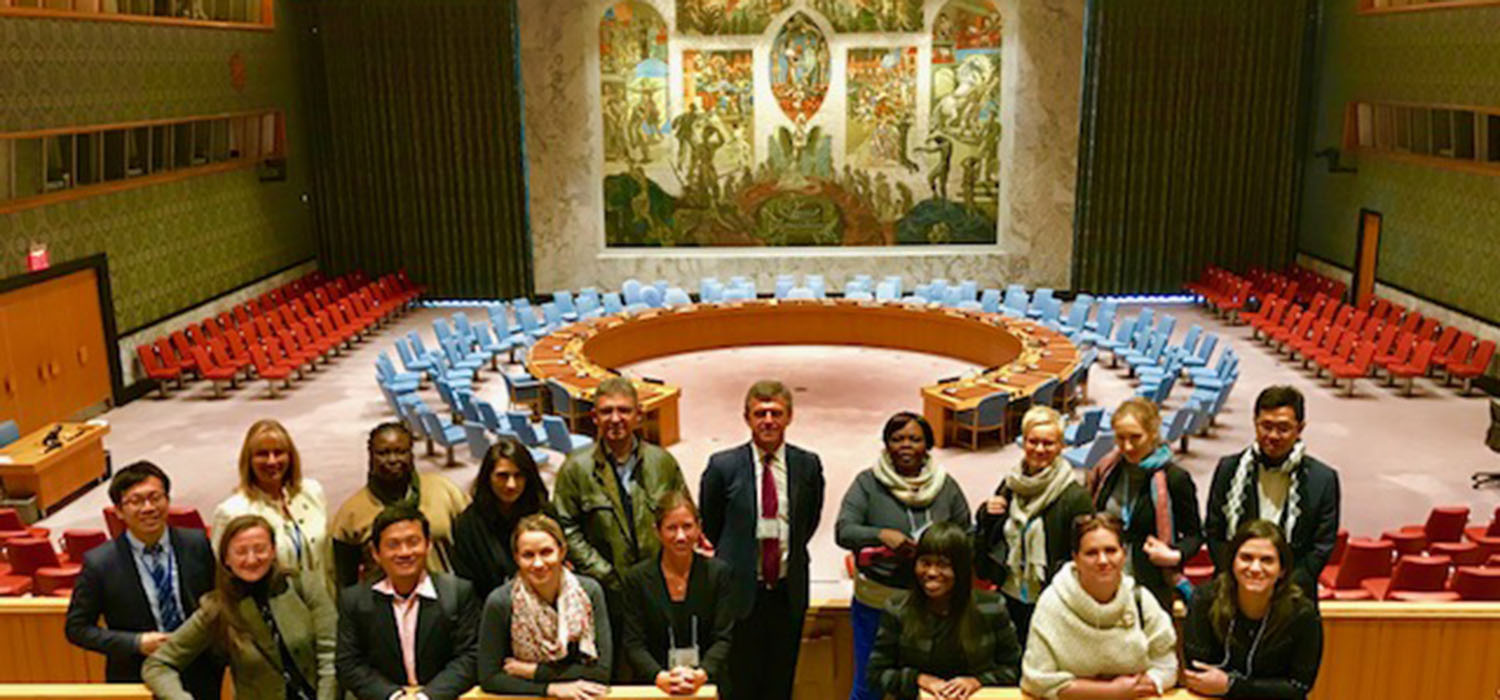The Executive Leadership Programme in Evaluation and the Sustainable Development Goals (ELPE) is a certificate training program designed to build the leadership and evaluation skills needed to support nations’ efforts to meet the SDGs.
The program targets established and aspiring leaders from government, intergovernmental organizations and the United Nations, as well as from nongovernmental organizations and the private sector.
The ELPE includes a series of e-learning modules and skills development workshops delivered over five days in New York. The fee-based program will lead to a certificate awarded by CGU and UNITAR.
Topics covered include:
- Ethical, human rights, equity, and gender issues.
- Communication and advocacy skills.
- Leadership skills, including visioning, strategy and planning.
- The development of a comprehensive SDG evaluation framework, policy and capacity-building plan.
- Evaluative, analytic and systems thinking.
- An overview of evaluation methods, both quantitative and qualitative.
- Key issues for national evaluation agendas in the SDG era.
ELPE Learning Objectives
After completing the program, participant will be able to:
- Describe the role and importance of evaluation and impact pathways in the public and private sectors in achieving the SDGs.
- Identify the main challenges in each SDG area, and the key linkages between the goals.
- Analyze options in terms of public and private sector strategy, financing and means of implementation.
- Identify methods and implement good practices in SDG-responsive evaluations, including systems-thinking, human rights, equity and gender-sensitive evaluation.
- Promote the attainment of the SDGs through strategic leadership and evaluation.
- Develop national evaluation agendas that reflect critical priorities.
- Commission evaluations and understand how to apply the results to inform the decision-making process.
Format of the Program
The program consists of a creative blend of online and face-to-face instruction, with follow-up coaching provided to learners on an individualized basis.
During the first four weeks, the Introduction to the 2030 Agenda is delivered online. The course is based on contributions from 22 parts of the United Nations family and consists of six interactive modules that cover the origins of the 2030 Agenda and the important role that evaluation will play. Each of the six modules measures learning using an objective knowledge assessment, and discussion forums are integrated into the course to promote interaction and exchanges among participants and course moderators.
Participants then gather in New York for the program’s residential component and actively take part in a series of mini-workshops with renowned faculty from CGU. During the week, they also identify an assignment or mini-project on which they will work as a follow-up to apply their knowledge and skills.
News
- October 26, 2017: UNITAR announces application deadline extended to October 31, 2017
- October 3, 2017: ELPE program featured on UNITAR website
